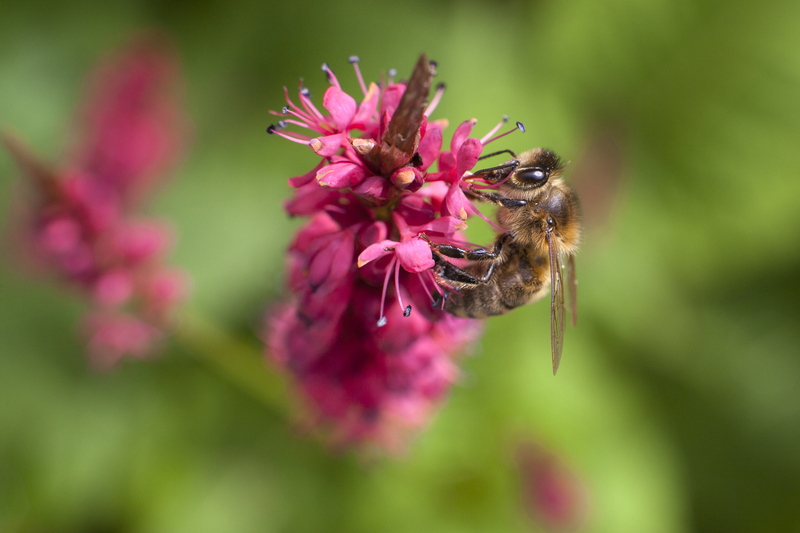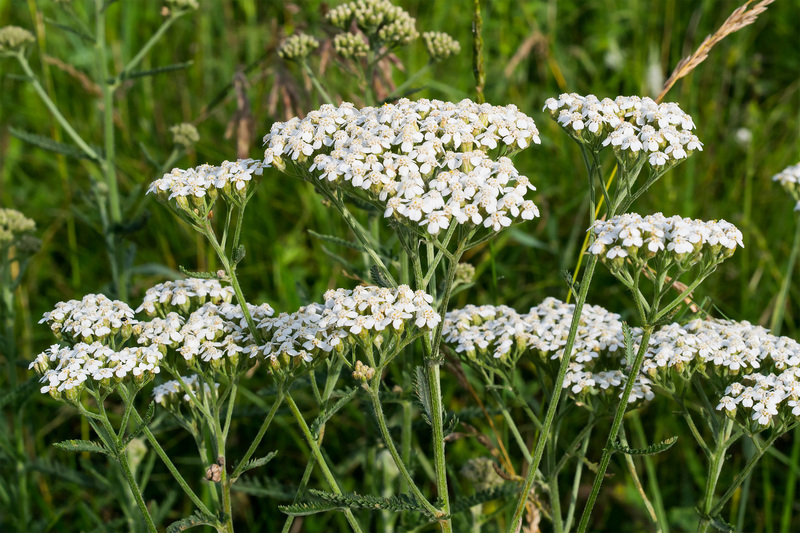Soil Enrichment Through Organic Waste Alchemy
Posted on 12/06/2025
Soil Enrichment Through Organic Waste Alchemy: Transforming Waste into Fertile Soil
Soil is the backbone of our ecosystems and a critical component of food production. However, poor management, chemical overuse, and erosion threaten its vitality. Thankfully, a transformative approach--soil enrichment through organic waste alchemy--is revolutionizing the health and sustainability of our soil. Dive into this comprehensive guide to see how seemingly useless waste can be turned into fertile, life-filled earth.
Understanding Soil Enrichment
Soil enrichment refers to the process of improving the natural composition of soil to increase its fertility, structure, and biological activity. Traditional agriculture often depended on synthetic fertilizers, but these can degrade soil health in the long run. By choosing to enrich soils with organic inputs, we lean on nature's wisdom and cycles, nurturing the earth for future generations.
Why Healthy Soil Matters
- Supports plant growth: Healthy soils provide essential nutrients and moisture.
- Prevents erosion: Enriched soil has better structure and resistance to weathering.
- Stores carbon: Rich soils can absorb CO2, helping combat climate change.
- Promotes biodiversity: Vibrant soil teems with microorganisms and insects that maintain ecosystem balance.

What is Organic Waste Alchemy?
Organic waste alchemy is the art and science of transforming organic waste into valuable soil amendments. It turns kitchen scraps, yard clippings, and agricultural byproducts into nutrient-rich compost, biochar, or other soil improvers. The process not only reduces landfill waste but also closes the nutrient cycle, feeding soil and plants naturally.
Types of Organic Waste Used
- Food scraps: Vegetable peels, fruit rinds, coffee grounds, eggshells.
- Garden and yard waste: Leaves, grass clippings, twigs, plant trimmings.
- Agricultural leftovers: Straw, husks, crop residues, animal manure (with proper composting).
- Other biodegradable materials: Paper towels, cardboard, wood chips (untreated).
The Benefits of Soil Enrichment Using Organic Waste
Transforming organic waste into soil amendments brings multiple benefits:
- Reduces landfill volume and greenhouse gas emissions from waste decomposition.
- Enhances soil fertility by naturally replenishing essential nutrients--nitrogen, phosphorus, potassium, and micronutrients.
- Improves soil structure, increasing water retention and root penetration.
- Stimulates beneficial soil life, fostering healthier plants and greater biodiversity.
- Decreases need for chemical fertilizers and pesticides, building resilience in crops and gardens.
- Builds organic matter, which is key to long-term soil productivity.
The Magic Behind Composting: Turning Waste Into Gold
Composting is the cornerstone of soil enrichment through organic waste alchemy. It's a controlled biological process where microbes break down organic matter into a stable, humus-rich material. Let's explore how it works and how to do it right.
The Composting Process
- Collection: Gather green (nitrogen-rich) and brown (carbon-rich) materials.
- Layering: Stack alternating layers to balance carbon and nitrogen.
- Aeration: Turn the pile to supply oxygen and speed up decomposition.
- Moisture control: Keep the pile damp, not soggy, for optimal microbial activity.
- Maturation: Finished compost is dark, crumbly, and smells earthy.
By following these steps, anyone can begin their soil enrichment journey using everyday organic wastes.
Advanced Forms of Organic Waste Transformation
Besides traditional composting, various innovative practices are adding new dimensions to the alchemy of soil enhancement through organic waste:
- Vermicomposting: Using earthworms to accelerate and enrich the composting process, creating highly fertile worm castings.
- Bokashi: A Japanese method that ferments food waste using beneficial microbes, producing a pre-compost suitable for soil incorporation.
- Biochar: Charred organic material added to soil, boosting water and nutrient retention while sequestering carbon long-term.
- Liquid compost extracts ("compost tea"): Soaking compost in water to create a nutrient-rich liquid for foliar feeding or soil drenching.
Key Factors in Effective Soil Enrichment through Organic Waste
To master the art of soil enrichment with organic alchemy, several principles must be considered:
Balancing Carbon and Nitrogen
The ideal compost contains a balance of carbon (browns: leaves, straw) and nitrogen (greens: food scraps, fresh grass). The recommended ratio is roughly 30:1 (carbon:nitrogen).
Encouraging Biodiversity
Adding diverse types of organic materials fosters a wider array of beneficial microbes and soil fauna, supporting robust soil ecosystems.
Avoiding Contaminants
Exclude diseased plant material, pesticide-treated waste, and dairy or meat products (unless specialized methods are used), as these can harm compost and soil health.
Timing and Application
- Apply finished compost in spring or fall to nourish soil before peak growing seasons.
- Mix into the topsoil or use as mulch for best results.
- Observe plant response and adjust application quantity as needed.
Real-World Impact: From Home Gardens to Global Agriculture
The benefits of soil enhancement through organic waste recycling ripple from small plots to entire regions and industries.
Urban and Home Gardens
- Boost vegetable yields and save money on fertilizers.
- Create closed-loop systems where kitchen waste returns as plant food.
- Engage communities in sustainable practices and local food production.
Commercial and Organic Agriculture
- Restore degraded soils in intensive farming areas.
- Reduce reliance on chemical imports, lowering costs and pollution.
- Support certification for organic and regenerative agriculture initiatives.
Municipal and Regional Strategies
- Divert food and garden waste from landfills, saving waste management resources.
- Close nutrient loops in cities, linking waste collection to urban food production.
- Improve resilience to climate impacts by building healthier, water-retentive soils.
Challenges and Solutions in Organic Waste Alchemy
While the promise of soil restoration via organic waste composting is enormous, there can be obstacles:
- Contamination: Modern waste streams often contain plastics or chemicals.
- Odor and pest control: Poorly managed piles attract vermin and produce smells.
- Time and labor: Composting can require space, effort, and patience.
- Knowledge gaps: Inadequate training may lead to poor-quality compost.
Solutions include:
- Community composting sites with trained staff and clear drop-off guidelines.
- Education campaigns for best composting practices.
- Innovations in compost technology, such as odor-reducing bin designs and worm farms.
- Government incentives and policies to support organic waste diversion and soil health projects.
DIY Guide: Starting Your Own Organic Waste Alchemy at Home
- Choose a Location: Find a spot for your compost bin or pile, away from buildings but accessible for regular use.
- Gather Materials: Collect kitchen leftovers, yard waste, and carbon-rich bedding.
- Build Your Pile: Alternate layers of green and brown materials. Moisture and air are crucial.
- Maintenance: Turn the pile every few weeks and keep it moist. Watch as the transformation unfolds.
- Harvest the Compost: After a few months, the bottom of the pile will yield dark, crumbly compost ready to enrich your garden.
Tip: For small spaces, consider vermicomposting with a worm bin or using a Bokashi bucket for indoor pre-composting!

Frequently Asked Questions About Soil Enrichment and Organic Waste Alchemy
- What can and can't go into compost?
Stick to fruit and vegetable scraps, coffee grounds, yard clippings, and eggshells. Avoid dairy, meat, oils, and chemically treated materials unless using advanced composting methods. - How long does composting take?
With active management, compost can mature in as little as 2-3 months; slower, cold composting may take 6 months to a year. - Does compost smell?
Properly balanced and aerated compost usually smells earthy, not foul. Too much nitrogen (greens) or excess moisture can cause odors. - Can composting attract pests?
If you avoid animal products and turn the pile regularly, pests are minimal. Use covered bins in urban areas. - Is compost safe for all plants?
Yes! Finished compost is safe for vegetables, flowers, shrubs, and trees. Just avoid using unfinished material directly on plants.
Conclusion: Cultivating the Future with Organic Waste Alchemy
Soil enrichment through organic waste alchemy is more than a gardening trend--it's a vital practice for planetary health, healthy communities, and resilient food systems. By closing the resource loop, nourishing soil life, and relying on nature's cycles, we can transform waste into abundance. Every handful of compost, every worm, and every transformed apple core is a step toward a regenerative future.
Join the movement: Feed your soil, not the landfill, and witness the alchemy of waste into life.
Recommended Resources
Read, share, and transform your waste--enrich your soil with the true alchemy of organic cycles!
Latest Posts
Navigate Your New Hobby with 9 Expert Gardening Tips
Turn Your Yard into an Oasis with 5 Budget-Conscious Tips
Gardener's Arsenal: 3 Tips for Superior Weed Suppression
Bring Charm and Comfort to Your Garden with Perfect Seating
Balancing Peace: Creative Zen Garden Ideas for Your Outdoors

